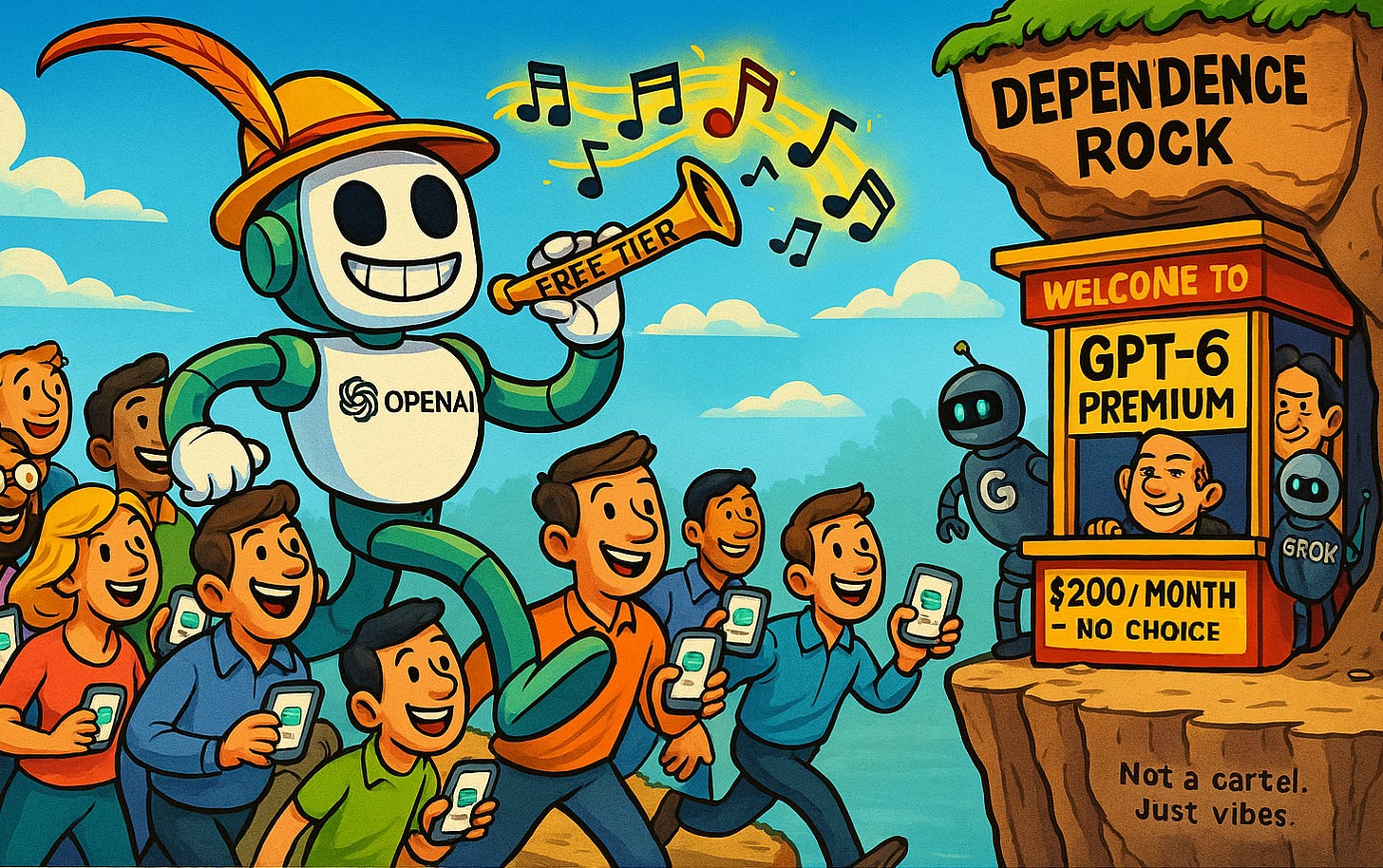CheatGPT? OpenAI’s Awkward Moment
FOR PAID SUBSCRIBERS: A weekend briefing on artificial intelligence (is it time to start learning about universal basic income?).
AI luminary Geoffrey Hinton has not been speaking like a laureate basking in the glow of his 2024 Nobel Prize. He is sounding more like Alfred Nobel himself, troubled by the misuse of his invention (of dynamite) — or J. Robert Oppenheimer, horrified at the nuclear weapons he helped bring into the world. The neural networks expert, widely seen as one of the fathers of artificial intelligence, has argued in a series of interviews that the economy cannot make money from AI unless human labor is replaced at devastating scale. If we were still a society that listened to experts, this would be an earthquake.
That’s because for centuries we have been reassuring ourselves with the same story: technological revolutions destroy some jobs but create others — better and more numerous. We mocked the Luddites for smashing looms, insisting that markets always rebalance. The tractor eliminated farm jobs but created the factory; the spreadsheet ended the typing pool but gave birth to IT departments. It held for a long time, and drove once-unimaginable levels of prosperity, first in the West and then spreading all over the world.
Hinton doesn’t think it holds anymore. “Some economists say these big changes always create new jobs. It’s not clear to me that this will, and I think the big companies are betting on it causing massive job replacement by AI — because that’s where the big money is going to be,” he told Bloomberg TV recently. “Can the investment — the trillion dollars or more investment … pay off without destroying jobs? I believe that it can’t. I believe that to make money you’re going to have to replace human labor.”
Put another way: The global economy is not collectively spending so much on AI research, advanced chips and cloud storage infrastructure to make humanity more fulfilled or to make workers 10 percent more productive — but to eliminate them. Capitalism demands returns and the simplest path is labor replacement. And since our society is organized so that both income and much of fulfilment come from employment, that’s catastrophic for individuals even if it’s profitable for companies. Could this be so?
Maybe. But the story may be more complicated still, because the economics of this have not yet played out — and the landscape is shifting ting all the time.
Keep reading with a 7-day free trial
Subscribe to Ask Questions Later to keep reading this post and get 7 days of free access to the full post archives.


